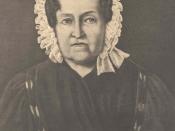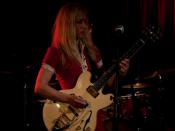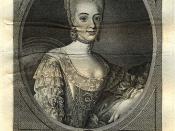I agree with Mary McCarthy's statement about Hedvig being the "Wild Duck." Hedvig is perhaps the play's most pathetic figure by its innocent and martyred child. She is of uncertain parentage, belonging either to Hialmar or Werle and potentially passed from the former to the latter in a marriage designed to avoid public scandal. Hedvig's beloved father dispossesses her at the moment when her future is assured through Werle's beneficence. Hialmar even makes special contraptions for the duck and Hedvig identifies with it completely. She comes to double the wild duck in being the wayward daughter. Like the duck, she is no longer certain of her origins and has been adopted into a second home.
Hedvig's doubling with the wild duck particularly distinguishes itself from that of the rest of the cast in taking metaphoric substitution to a deadly conclusion. This shift occurs when the two figures both become the object of sacrifice.
When Hialmar abandons Hedvig, Gregers will exhort her to sacrifice the duck, her most precious possession, to prove her love for her father. Hedvig will enter the garret to kill the duck but end by killing herself in a chaste and bloodless suicide. She dies for her father's love. The irony is that throughout the play Hedvig intuits the lunacy of Gregers's gospel and nearly awakes from it before committing suicide.
The symbols of the wild duck and of Hedvig's blindness are crucial to an understanding of the play. The wild duck symbolizes something to do with freedom, which Old Ekdal has lost in his disgrace and which his son's household can never have because of his economic dependence on Werle. The bird has been crippled by Werle, and in its company Old Ekdal seeks his former happiness, as he carries out...


